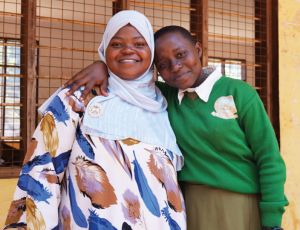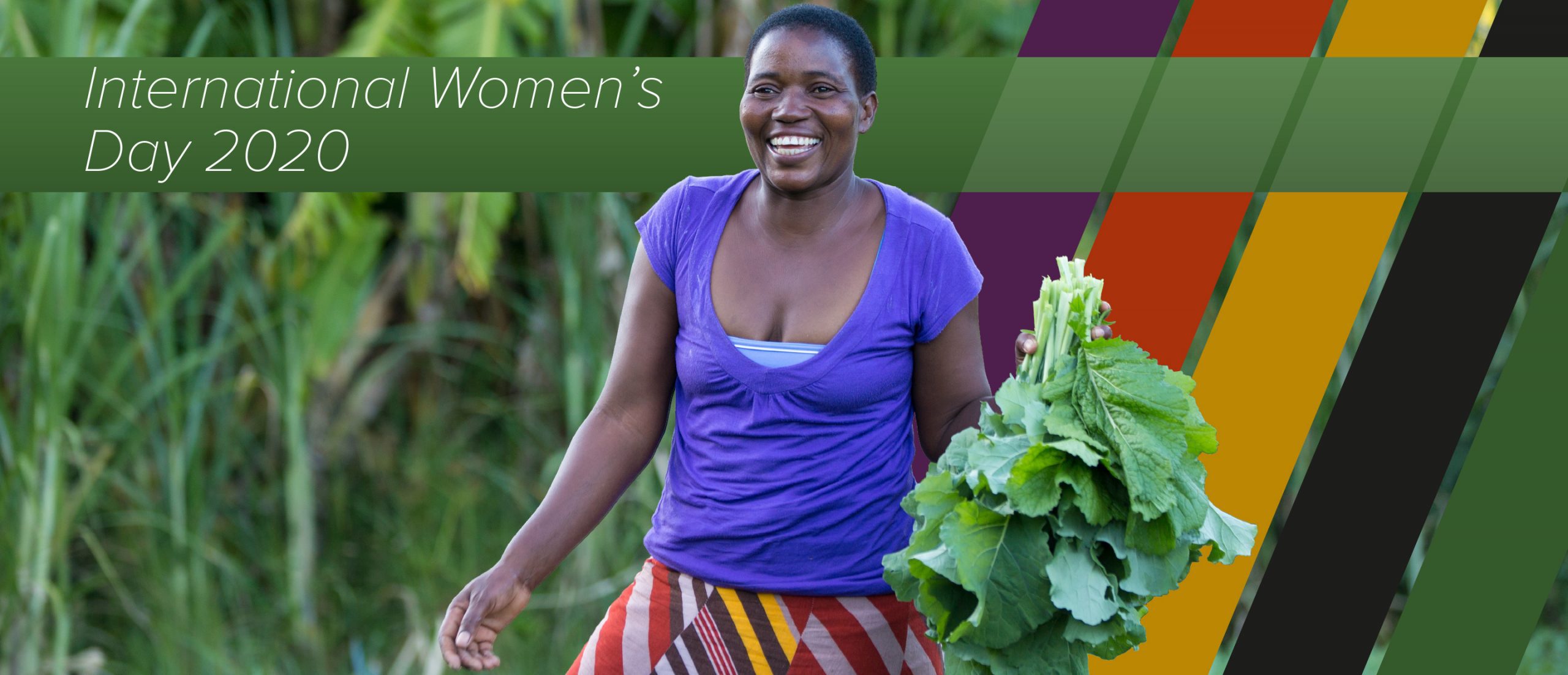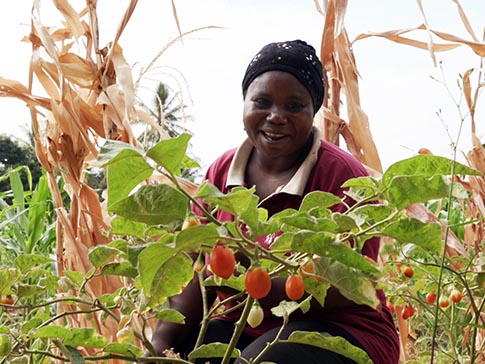
When she thrives, we all thrive
Together this giving season, we can make a difference that ripples outward to benefit everyone.


Collectively, we are taking stock, at a time when not a single country has achieved gender equality, with only 10 years to go to meet the Sustainable Development Goals to make the world a healthier, safer, more equal and more prosperous place.
It all starts with education, and with women and girls being valued equally, with the same opportunities and rights as their male counterparts.
Equality starts with education. Education paves the way for financial independence and leadership. When a woman is financially independent, she has a voice; she has agency; she can resist exploitation and make decisions about her body and her future. And she has the capacity to reach out to others, to lift them up. She can be that role model, that entrepreneur, that policy maker, using her own experience to help others go further, quicker.
Fiona Mavhinga, CAMFED Association leader
CAMFED, which supports girls in sub-Saharan Africa to learn, thrive and lead change, has created a model that radically improves girls’ prospects of becoming independent, influential women. Our International Women’s Day appeal focuses on the impact of supporting vulnerable young women from marginalized communities beyond the classroom, to lead change as experts in sustainable business, including in climate-smart agriculture.
“Women continue to face a lot of barriers – they still don’t have the same educational opportunities, land, capital, or support networks as men. But we are showing that when you remove those barriers, women’s contributions create an incredible multiplier, making the world a better place for all of us,” says Fiona Mavhinga, founding member of the CAMFED Association of women leaders educated with CAMFED support.
In 2019, an analysis by the Boston Consulting Group showed what this would look like on the macro level: “If women and men participated equally as entrepreneurs, global GDP could rise by approximately 3% to 6%, boosting the global economy by $2.5 trillion to $5 trillion.”
I would like to create a supportive environment to ensure girls can access school easily, can perform well, and understand the consequences of early pregnancies and marriages, and of dropping out of school.
Mwanaisha Salehe, CAMFED Association entrepreneur, Tanzania
On the micro level, the figures are just as persuasive: The Food and Agriculture Organization of the United Nations has shown that “an increase to a woman’s income of $10 achieves the same improvements in children’s nutrition and health as an increase to a man’s income of $110.”
CAMFED, which invests in young women in and beyond the classroom, now has a 150,000-strong network of educated women leaders, whose activism underscores these statistics. Women like Mwanaisha from rural Tanzania, a climate-smart farmer who has already trained 1,200 community members, and offers jobs to 15 workers. She supports students with life skills sessions, and donates food to her local school.
As a successful businesswoman, she not only develops her community, but is a realistic role model for other girls. She is part of #GenerationEquality, a generation CAMFED is seeking to grow as a matter of urgency.

Mwanaisha runs a flourishing agricultural business, raising animals and growing crops including tomatoes, bananas, and other fruit and vegetables. She employs 15 farm workers, the majority of whom are women.
Eric Osberg $100
Charlotte Cushman $26.6
Eric Gladbach $106
Tengyu Zhao $158
Julia Garcia $300
Candace Carlisle $526
Joshua Ardizzoni $37.1
Jeffrey Roth $150
Luke McKetta $52.9
Andrew Bartels $158
Lee Lichter $1052
ALAN WARSHAUER $158
Deborah Kamins $158
Maurice Elias $57.1
glen and lois mumey $263